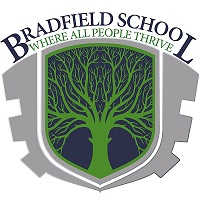A child who reads will be an adult who thinks

Reading opens doors to knowledge, critical thinking, empathy, and personal growth. In this blog, we will explore the numerous benefits of reading in secondary schools and how you, as parents and carers, can play an integral role in nurturing this essential skill.
Expanding Horizons:
Reading acts as a gateway to a world of ideas, cultures, and experiences beyond the confines of a classroom. By engaging with diverse texts, your child gains insights into different perspectives, historical periods, and global issues. Books provide windows into the past, present, and future, fostering a sense of curiosity, broadening their worldview, and promoting tolerance and understanding. Please encourage your child to visit the library where we have recently bought a diverse selection of books to support that understanding of different cultures, lifestyles and ideas. We are delighted that we already exceeded the number of books borrowed over the whole of last year by the Easter holidays!
Enhancing Academic Performance:
Strong reading skills form the foundation of academic success which is why we are focusing on developing a common Reciprocal Reading approach across the SEN, English and History departments to begin with, and focusing on explicit vocabulary strategies in all subjects. Our young people need to develop the ability to decode meaning to access exam style questions, whether that be for a maths or English literature exam. By encouraging reading habits, you give your child a significant advantage in all areas of their studies. Our reading newsletters so far this year we hope will have given you some ideas.
Developing Critical Thinking:
Reading also promotes critical thinking skills, enabling your child to question, evaluate, and form independent opinions. Through exposure to various genres and authors, they learn to interpret and analyse text, identify underlying themes and motifs, and make connections between ideas. These cognitive skills foster intellectual growth, empowering your child to approach problems with creativity and a discerning eye. In form time as well as in the lessons mentioned above, all Key Stage 3 students are developing their reading skills through this Reciprocal Reading approach which encourages and develops their independent reading skills. You can support this at home by encouraging students to predict, question, clarify and summarise, which are they four key areas of the reciprocal reading approach.
Building Empathy and Emotional Intelligence:
Reading offers a unique opportunity to explore the human experience and develop empathy. As your child immerses themselves in stories, they encounter diverse characters facing challenges, triumphs, and dilemmas. This exposure cultivates emotional intelligence, allowing them to understand different emotions, perspectives, and cultures. Empathy, a crucial life skill, enables them to relate to others, collaborate effectively, and navigate the complexities of the world with compassion.
Enhancing Communication Skills:
A strong reading habit directly impacts your child's communication abilities. By being exposed to well-crafted narratives, rich vocabulary, and varied writing styles, they learn to express themselves eloquently, articulate their thoughts, and communicate effectively. These skills are invaluable not only in academic settings but also in future careers and personal relationships. The current work in form time, as well across the different subjects, allows our young people to communicate their ideas effectively, develop their discussion skills and encourage a wider vocabulary.
Fostering Creativity:
Reading sparks imagination and nurtures creativity. It encourages your child to visualise settings, characters, and events, stimulating their creativity and encouraging them to think beyond the confines of the written word. By exploring different literary genres, they gain exposure to diverse storytelling techniques, expanding their creative repertoire and inspiring their own writing endeavours.
Finally….
Please encourage your child to read, borrowing books from our library, whenever possible. We’d love to expand our library even further so if you have any good condition, modern fiction books aimed at young adults or teenagers, please send into school with your child to donate to the library.
Happy reading!
Lucy Dewsnap
Subject Leader of English and Strategic Reading Lead
